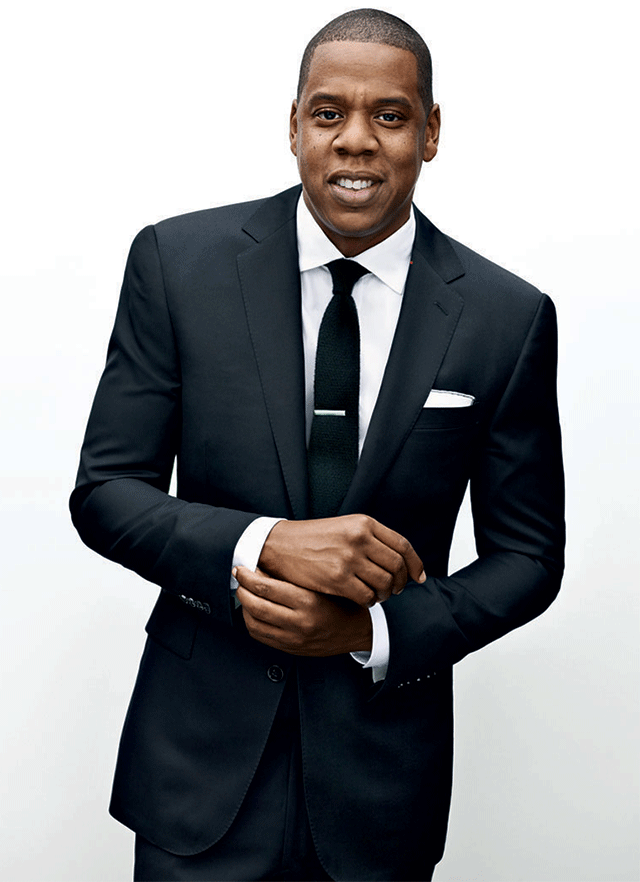Lots of intriguing stuff around Jay-Z, Universal, Taylor Swift and others happening recently. It all began a few weeks ago when one of the Jay-Z's companies bought Aspiro, a Swedish music streaming company that runs the streTidal. Flashback further and we remember that Taylor Swift removed all her music from Spotify, claiming that it didn't place enough value on music. There was lots of speculation around why else she may have done this, including rumours that it was an effort to increase sales of her 1989 (which it did) and that her music would appear on Google's new streaming service, Youtube Music Key.
This week her back catalogue (her previously recorded music) has turned up on Tidal, which should make the service much more appealing to consumers. It needs to be given the competition that now exists on the streaming market. As well as market leader Spotify, we now have Pandora, Youtube Music Key and Apple's soon to re-launch Beats Music. Tidal is also banking on audiences being drawn to the better quality audio of its service - CD quality, HD sound. It's monthly subscription is £10 more expensive than Spotify's so the content has to be better. They seem to be trying offer the audience a more immersive experience as well with music videos and exclusive interviews also available.
What makes this all the more interesting is a big meeting held around the time of the Grammys. Jay-Z gathered
together some of the biggest music artists to discuss a way forward for
the music industry. According to this Forbes article, they may have discussed artists taking control without record labels. It could be that Tidal is a service that would allow artists to do so. The reason artist make so little from services like Spoitify is because the record label takes such a big cut. Alternatively, he may have just been helping out Universal as all the artists there, bar Madonna, are Universal artists and Jay-Z is also a Universal artists (the label he controls, Roc-a-Fella, is a subsidiary of Universal). The Forbes article is well worth a read - all two pages!
Thursday, March 26, 2015
Tuesday, March 17, 2015
AS Evaluation
 Click on the title of this post to see some suggestions for how you can present your ideas for each of the evaluation questions. These are just ideas and you don't have to present them in these ways. However, they are suggestions made by the chief examiner so are well worth thinking about.
Click on the title of this post to see some suggestions for how you can present your ideas for each of the evaluation questions. These are just ideas and you don't have to present them in these ways. However, they are suggestions made by the chief examiner so are well worth thinking about.The exam board has posted examples of AS blogs with an examiner's commentary here. You should look closely at these before planning your evaluation.
So we are clear the 7 questions you must answer individually are:
1. In what ways does your media product use, develop or challenge forms and conventions of real media products?
2. How does your media product represent particular social groups?
3. What kind of media institution might distribute your media product and why?
4. Who would be the audience for your media product?
5. How did you attract/address your audience?
6. What have you learnt about technologies from the process of constructing this product?
7. Looking back at your preliminary task, what do you feel you have learnt in the progression from it to the full product?
Wednesday, March 11, 2015
Famous Copyright Cases From The Music Industry
Sky News has usefully compiled a brief summary of some of the most famous musical copyright cases. Check it out here
How Much Do Artists Make From Spotify?
Time Magazine has created an interesting Spotify earnings calculator where you can see how much major artists earn through being streamed on Spotify. It's well worth looking at as evidence for the debate over whether streaming is really the future of music distribution. As we know Taylor Swift removed her music from Spotify, claiming that the amount paid doesn't place enough value on her music. In the past the musician Billy Bragg has claimed that the problem isn't with how much Spotify pays per stream ($0.06 - $0.84 according to Time) but the percentage that the record company takes before the artist gets paid.
Pun Alert: The Blurred Lines Between Inspiration and Copyright Infringement
A court in America made a massive decision in relation to copyright infringement last night. It ruled that the Robin Thicke and Pharell Williams track 'Blurred Lines' (a Universal release) infringed the copyright of soul legend Marvin Gaye's 'Got To Give It Up'. Listening to the two tracks, there is a definite similarity in the bass line. See what you think by listening to the two tracks (below). This interview has a quite a good explanation of how the ruling raises questions about what counts as inspiration and what counts as infringement. It also sets out some of the potential problems for musicians as a result of the ruling, including how open they might be about their musical inspirations.
You can read more about the case in this BBC New article.
Of course, the controversy around the message of Blurred Lines is an entirely different matter that deserves a debate of its own.
You can read more about the case in this BBC New article.
Of course, the controversy around the message of Blurred Lines is an entirely different matter that deserves a debate of its own.
Subscribe to:
Comments (Atom)



